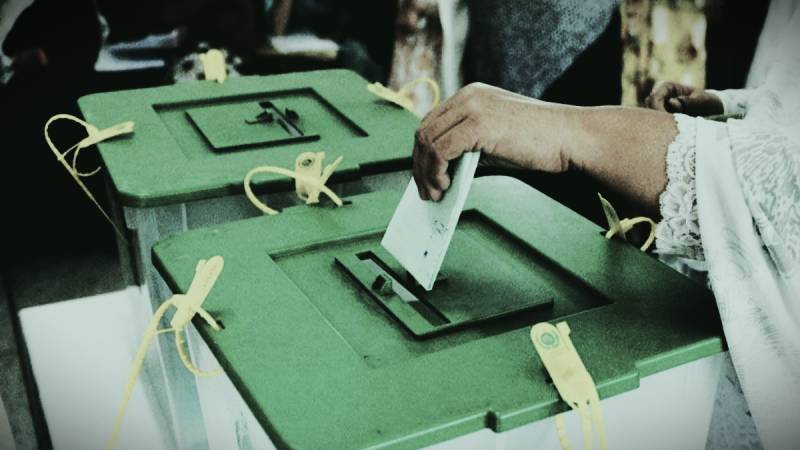
When Pakistan is currently grappling with economic and political crises, a crucial question to ask is: Should the government prioritise immediate reforms or proceed with scheduled general elections?
This dilemma is riddled with complexities that require a nuanced approach.
The recent surge in inflation has triggered widespread public anger, leading to protests, strikes, and demonstrations. To address this turmoil, the government could consider increasing its revenues by imposing special taxes on the wealthy, withdrawing privileges, and implementing austerity measures – to ensure a more equitable distribution of the economic burden.
The abrupt escalation of electricity bills and fuel prices has exacerbated the hardships faced by those already struggling with hunger, disease, and unemployment. Such policies have not only halted economic activity but have also depleted the savings of ordinary citizens.
Compounding the complexities are the resurgent security threats along Pakistan's western borders. This evolving security landscape has further complicated matters for the interim government. The stark difference from its predecessor lies in the geographic scope of the problem, with multiple regions now affected and the absence of a responsible political party that could have efficiently addressed these issues.
The ongoing political and economic crisis has eroded public trust in leadership and representation. The elites who hold power are increasingly disconnected from the needs and aspirations of the general populace, and there is a notable lack of accountability for their actions, especially concerning the management of external debt.
While the prospect of holding general elections looms on the horizon, numerous challenges stand in the way of conducting a transparent and peaceful electoral process. These hurdles include flaws in electoral laws, the limited capacity of the Election Commission of Pakistan, growing economic disparities, and political inefficiencies. The constitutional ambiguities, particularly regarding the concept of citizenship and a divided judiciary, further complicate matters.
Conducting elections, which are a cornerstone of the democratic process, is threatened by these challenges. The potential costs, both in terms of finances and social stability, associated with pursuing elections in this climate may outweigh the benefits.
Pakistan must strike a delicate balance between immediate reforms and transparent elections. Prioritising the welfare of the people, addressing historical economic imbalances, and safeguarding national security should be paramount.
The public's reaction to protests against skyrocketing electricity bills and fuel prices underscores the seriousness of the situation. Citizens acutely feel the impact of economic policies that seem to prioritise the interests of the elite. Beyond economic grievances, there is also mounting unrest in Pakistan's western regions, adding an additional layer of complexity to the crisis. The confluence of economic downturns and security threats necessitates a careful and decisive response.
Understanding the current crisis requires acknowledging its historical roots. The partition of Punjab resulted in the loss of control over crucial eastern rivers that had long supported agriculture. The partition of Bengal weakened the nation's industrial base, rendering it economically vulnerable. The remnants of the feudal system continue to influence the social fabric of the country, even decades after the fall of Dhaka.
The continuity of democracy in Pakistan since 2008 can be largely attributed to the IMF loans that buoyed the economy. However, these loans were often misallocated, with funds channelled primarily into projects and political appointments rather than benefiting the broader population. The time has come for accountability, as the burden of this debt has been shifted onto ordinary citizens.
At a time when self-interested elites pose a threat to the nation's integrity, the emphasis on a 'one-page' mantra is perplexing. Equally troubling is the behaviour of the so-called neutral interim government, which appears to be leaning towards a coalition government. The disproportionate burden of external debt on those already struggling, coupled with the lack of fiscal discipline, underscores the need for accountability and responsible financial management.
The elite consensus on marginalising the people in order to salvage the economy endangers not only democracy but also national security. Even the United States acknowledges the need for reforms to stabilise the economy, which primarily entails bringing the wealthy into the tax bracket and implementing austerity measures. The current hope of the elites centres on attracting foreign capital, which may involve selling national assets. However, expensive energy and unbridled religious extremism pose challenges that could deter both, local and foreign investors.
In navigating these treacherous waters, Pakistan must strike a delicate balance between immediate reforms and transparent elections. Prioritising the welfare of the people, addressing historical economic imbalances, and safeguarding national security should be paramount. A concerted effort to restore economic stability, ensure political accountability, and protect the interests of ordinary citizens is essential for Pakistan's path forward to a more promising and sustainable future.

